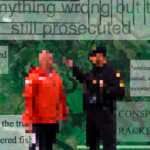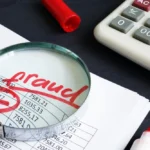Vultures Circle in Aftermath of Florida’s Twin Terrors

Like any tragic disaster, the vultures flock to the scene afterward. You can see them circling across Florida and up into the Carolinas in the aftermath of the “Twin Terrors” of hurricanes Helene and Milton.
These vultures don’t have feathers and don’t eat carrion, but they are just as ugly. They are the fraudsters and scam artists who prey on victims’ desperation and kindhearted individuals who want to help victims recover from a disaster.
Hurricane experts quickly point out hurricane season doesn’t officially end until after Thanksgiving. There have even been after-Christmas and New Year’s latecomers in some years.

The alliterative phrase you will be hearing a lot this late in the hurricane season is “warm water,” which is needed to turn a weather system into a tropical storm and a tropical storm into a hurricane. The Caribbean islands have had additional storms since Milton, primarily Oscar and Rafael impacting Cuba, Jamaica and the Caymans.
Those living in the Caribbean/Gulf area are hoping the rest of November is especially cool this year.
Focus on the Present, Not Predictions
There’s plenty of time to worry about the future storms. Right now, residents of the Southeast are still dealing with the destruction caused by Helene and Milton and the threat posed by the aforementioned “vultures.”
One area on the Sunshine State’s west coast felt the impact of both storms – Helene’s wrath and Milton’s mild-to-moderate aggravation.
The tiny hamlet of Yankeetown, population around 600, was hit hard by Helene but found itself on the “good” side of Milton, which tore up the Florida Gulf Coast when it hit about 100 miles south.
“Helene was historically bad,” Buddy and Fred’s Hardware owner Scott Dumont told The Daily Muck. “I think the worst impact we had from Milton was everyone from Tampa coming up here and wiping out our gasoline.”
He said the main problem that caused wasn’t so much not having gas to drive around, but for those without electricity who are relying on generators to keep the lights and refrigerator working.
Bad Weather Is Good for Business
As a hardware business, Dumont said Gulf storms are a mix of good news and awful news.
“Truth is, storm season makes or breaks us for the year – unfortunately,” Dumont said. “You don’t want it to happen, of course, but that’s why we’re here, and the people rely on us to be there for them.”
The store has had a lot of business in the aftermath of Helene’s record-breaking flooding and some serious wind damage from Milton.
“It’s not just hardware stores,” Dumont said. “Business increases for everyone after a storm. If you can’t cook, then there’s an increase for the restaurants from people eating out.”
It’s one of the risks of living on Florida’s “Hurricane Coast.”
“Every hurricane that enters the Gulf seems to be projected to hit us – but they usually don’t,” Dumont said. Over the past two years, the area has been hit once or twice each year.
Dumont said he doesn’t know anyone who has been victimized by scam artists and fraudsters.
“I am sure there are people worried about that,” he said, “but this happens so often that most people are aware of what to do.”
Wind and Water
Town Manager William Ary said Helene broke all records for flooding and destruction in the town’s 100-year history. A storm surge from the Gulf flooded about two-thirds of the town.
“We aren’t even in full recovery mode yet,” Ary said. “We are still trying to get boots on the ground to clean up the debris and people’s houses so contractors can get in and start the repairs.”

Ary said Yankeetown historically had a hurricane or tropical storm once every two or three years. It had a calm period from 2017-2022 with only minor impacts. Then Idalia struck in 2023, breaking all storm records for destruction.
“Helene doubled, maybe even tripled, the effects of Idalia,” he noted.
By comparison, Milton was a breeze – a breeze that knocked down 18 trees in the town.
“With Helene, it was water,” Ary said. “With Milton, it was wind.”
Concerning would-be fraudsters, Ary’s attitude is just shy of Dirty Harry’s “You feel lucky – punk?”
“We don’t have much fraud here,” he said. “After a storm, we force all people who say they are insurance adjusters, contractors, and so forth to come in and register with us before they can do business in town. We check their licenses and do a thorough background search on their credentials.
“When they know there are eyes on them, they tend to stay away from us,” he continued. “We put a process in place to protect the people from that kind of thing.”
The Question You’ve All Been Asking
To answer the most pressing question on readers’ minds at this point, we asked Ary, “How did Yankeetown get its name?” (You’re welcome)
“There was a man named A.F. Knotts who came here from Indiana,” Ary recounted. “He decided to build a community here. It was going to be called ‘Knotts.’ However, when he was developing the area in preparation for filing a charter, people around here would say, ‘Have you seen what’s going on in that Yankee town,’ because all the people in town were from Indiana then.
“The name caught on, so when Knotts filed for incorporation in 1923, he changed all the references of ‘Knotts’ to ‘Yankeetown.’ We celebrated our 100th anniversary last year,” Ary said.
For those who think Yankees only refers to a New York baseball team, the word has a long history as a derogatory term, ever since the Dutch in New York started calling American colonials “Jan [Yahn] Kees” (John Cheese), apparently implying they had a peculiar odor.
To the Floridians, the term would have referenced anyone from someplace north of Kentucky and Virginia. It was a term commonly used in what some euphemistically referred to as “the recent unpleasantness” of 1861-1865.
Hurricane Milton did have one other impact on the town. FEMA workers doing house-to-house assessments of damage and taking applications for assistance were yanked from Yankeetown after Milton ripped Florida in half.
“I’ve been in contact with our representative and asked when we can expect to get the federal aid that was promised,” Ary said in late October. “I’ve been told it is coming, but it isn’t here yet. I’m not going to hold my breath until it does.”
Pinellas County Hit Hard by Both Hurricanes
Another hard-hit area of the Sunshine State was Pinellas County, with approximately 500,000 residents. As with the smaller communities we noted, Helene swamped the county with a massive storm surge while Milton whipped it with high-velocity winds.
Evacuation orders were given for both hurricanes. Most, but not all, left before the storms hit. Tragically, this resulted in 12 people dying in Hurricane Helene and two killed by Milton.
“We learned some hard lessons from these two storms,” the Sheriff’s Department said in an Oct. 22 press release. “Chief among them, that when the evacuation order comes, you should heed it because, if you need us in the middle of a hurricane, ‘We aren’t coming.’”
The department pointed out that “when hurricane-force winds are blowing, when storm surge gets high, first responders can’t come for you if you call 911. We want to, but even our tallest high-water vehicles and our toughest boats can’t make it through the water and debris that inundated our barrier islands and low-lying areas.”
Protecting Against Thieves, Vandals, Unlicensed Contractors
Pinellas County takes a no-nonsense approach to protecting its citizens in the aftermath of tragedy and disaster.
Sheriff Bob Gualtieri noted in an Oct. 24 press conference that deputies were busy in the post-hurricane aftermath. The department arrested over 60 individuals on various charges in the first three weeks of October as the county was struggling to get back to normal. Those charges included burglary, armed robbery and vandalism.
He said a three-day “Flood of Fraud” undercover operation, conducted in partnership with other state agencies, targeted unlicensed contractors seeking to “double victimize” residents of Pinellas County. This operation resulted in 63 arrests on 90 charges involving 75 projects in the city of Madeira Beach that totaled $250,000 of work, Gualtieri said in his televised press conference.
Most of those arrested were from outside of Pinellas County, and many were illegal immigrants from Mexico, Central America and South America, Gualtieri said.
Immediate Aftermath: Extra Deputies, Increased Patrols
“With some people still without power, and people washed out of their homes and businesses, we assured our residents and business owners that we would saturate their neighborhoods and businesses with deputies to prevent looting and deter those who wanted to wreak further havoc,” Gualtieri said in a Nov. 5 press release. “We wanted people to feel safe so that they could evacuate and not worry about their properties.”
The department increased patrols, putting 80 extra deputies on the roads at night and 30 during the day.
In another press release, Gualtieri said deputies rescued 500 people from an apartment complex that still had more than six feet of standing water the morning after Helene struck. Deputies went door-to-door through hard-hit neighborhoods to ensure residents were not injured or worse.
The wind damage from Milton shut down the country for a while because “many roads were impassible because of fallen trees, traffic lights were out at many major intersections, and more than half of the county was without power,” the report stated.
Although access was restored the day after the storm, the area was still full of hazards for some time afterward, the department release added.
‘Vultures’ Turn from Predators to Prey for Police Agencies
Even though the floodwaters have receded, the downed trees have been removed, and the rebuilding/recovery efforts are underway, law enforcement officers are still busy rounding up the “vultures” in their communities.
In a Nov. 7 press conference, Giualtieri and Clearwater Police Chief Eric Gandy gave an update on efforts to arrest unlicensed contractors preying on the victims of hurricanes Helene and Milton.
A PCSO summary of the press conference said the two agencies “completed a two-day joint operation, ‘Flood of Fraud 2,’ that led to the arrest of over 40 suspects with over 50 charges.” The operation took place Nov. 6 and Nov. 7 on Clearwater Beach.
“As we announced two weeks ago in Madeira Beach, our current focus is protecting our residents and businesses who are desperate to rebuild and get on with their lives from being exploited and ripped off by people offering to do work on their property,” Gualiteri said.
Gandy said Clearwater had never experienced this level of storm damage before. “In some cases, it was catastrophic. Houses were completely destroyed and infiltrated with water,” he said. “We’re just here to make sure our citizens don’t take another hit from an unlicensed contractor.”
‘Scammers and Thieves’
The Sheriff’s Department says the main threat to residents now is not the robbers, thieves and vandals who took advantage of evacuated neighborhoods but the unlicensed contractors who “flocked to town offering to do work on flooded or wind-damaged property.”
“In some cases, they have no intention of doing the work,” Gualtieri said. “In other cases, they are unqualified to do the work, and in all of these cases, they’re unlicensed to do the work.”
Approximately 40,000 Pinellas County homes were damaged by the back-to-back hurricanes, resulting in legitimate contractors being backed up with work.
“People are desperate to get their lives back in order, and they might sign contracts without reading them carefully or trust a stranger who claims to be licensed without looking for proof,” the department said in its Nov. 5 report.
“People come in after a hurricane and solicit work, get down payments, and then they never do the work, never complete the work, or they do shoddy work that does not meet code and then has to be redone at additional cost,” Gualtieri said.
The sheriff said these so-called contractors “are simply scammers and thieves and no different than the people in the neighborhoods at 3 a.m. breaking into houses that we’ve been arresting.”
The ironic thing about these contractors is that the victims may be better off if the scammer does no work than if they do substandard work. Work on roofing, electrical, plumbing and major structural repairs “if done wrong, can ruin a house,” the department cautioned.
Another danger to property owners is that many of these unlicensed contractors and fraudsters have lengthy criminal records for fraud, theft, burglary, drugs, sex offenses and others. Giving career criminals access to your home, family, possessions and personal indentification or financial information can have devastating consequences.
FEMA Spearheads Relief Efforts
For those not fortunate enough to have a local “Make My Day” anti-fraud registration system in place, the Federal Emergency Management Administration (FEMA) has released a fact sheet on how victims of nature can avoid becoming victims of human nature.
“Unfortunately, scammers often target survivors with promises of quick financial relief or requests for donations to fake charities after a disaster when they are most vulnerable,” the FEMA release states.
The agency encourages people to “beware of unsolicited messages, emails or calls claiming to be from FEMA or other organizations offering to help. FEMA will never ask for your personal financial information over the phone or through email. FEMA will only contact you if you have called FEMA first or registered for assistance.”
Those receiving a suspicious email or phone call should call the FEMA Helpline (1-800-621-3362) to verify if the contact came from FEMA.
Many caring individuals want to help their fellow citizens in their times of trouble. FEMA said scammers “often set up fake charities that seem legitimate. Before donating, verify that the charity is a real organization that provides help to people. Do a quick online search and ensure that the organization existed before the disaster.”
States and nonprofits are also active in providing financial and clean-up efforts to communities devastated by the hurricanes. Florida Gov. Ron DeSantis issued a comprehensive update on the Sunshine State’s actions on Oct. 17
Protect Yourself and Others: Report Fraud
To nip criminal activity in the bud, report fake charities and scams to the National Center for Disaster Fraud (1-866-720-5721).
The NCDF was created after Hurricane Katrina “to deter, investigate and prosecute fraud in the wake of disasters,” according to a Justice Department press release. “More than 50 federal, state and local agencies participate in the NCDF, which reminds the public to be aware of and report any instances of alleged fraudulent activity related to relief operations and funding for victims,” the press release stated.
Be careful about sharing misinformation in the aftermath of a disaster.
“If you come across a post or message that seems suspicious, check the source before sharing it,” the FEMA report states. “Look for information to come from trusted sources, such as FEMA, local governments or nonprofits.”
Accurate updates on ongoing relief efforts will be posted on FEMA.gov or the agency’s social media pages.
The Pinella County Sheriff’s Office advises property owners to do their homework before letting someone work on their home.
“Beware of unlicensed contractors! We know many homeowners are ready to make repairs and rebuild following Hurricanes Helene and Milton, but there are some unlicensed contractors that may try to exploit this situation,” the department states in an Instagram message. “While the need for repairs is urgent, hiring unlicensed workers can lead to costly mistakes, unfinished work, or even scams. Before you hire anyone for repairs, verify their license, insurance, and check out their reviews.”
Fed or Fraud: How To Tell the Difference
FEMA advises victims to “always ask to see I.D,” according to an Oct. 6 press release. “FEMA personnel will always have an official identification badge. A FEMA shirt or jacket is not proof of identity.”
Commonsense protection includes never providing personal information, such as Social Security number or bank account data, “unless you are speaking with a verified FEMA representative,” the press release says. “Be on alert if someone asks for your 9-digit registration ID, which you receive when you apply for disaster assistance through FEMA.”
FEMA said a home inspection of damage may be necessary to provide assistance, but “FEMA inspectors will make an appointment before coming to your house. They may verify your identity using the last four digits of the 9-digit registration number but will not ask for all nine numbers. FEMA inspectors will also not ask you for your Social Security number.”
Another dead giveaway is if a “contractor” shows up at your house and says they have been given a FEMA contract for repairs in your area.
“FEMA does not hire or endorse specific contractors to fix homes or recommend repairs,” the press release states. “A FEMA inspector’s job is to verify damage.”
The Federal Trade Commission (FTC) reminds storm victims to “never sign your insurance check over to someone else. Be sure to research contractors and get estimates from more than one before signing a contract for work. Get a written contract for repairs and read it carefully before signing it.”
Your best source of information during these turbulent times is your local media. Local officials will use local media to provide updates on disaster fraud and scams.
A Federal Team Effort
There have been many false, damaging and politically-motivated conspiracy theories and outright lies about the federal response to the disastrous duo. FEMA had to take security precautions in North Carolina after reports of armed “militias” threatening to “hunt FEMA” due to their misguided belief that the government was – for some reason nobody can explain – actually harming the citizenry.
The fact is that while FEMA takes the point on disaster relief, other federal agencies also get involved to ensure victims are served, and well-intentioned individuals don’t become victims of fraud.
One possible result of natural disasters is price gouging. The FTC is involved in guarding against this profit-motivated activity.
“To avoid scams and frauds while you’re recovering from a hurricane or another natural disaster, remember only scammers will insist you pay for services by wire transfer, gift card, payment app, cryptocurrency or in cash,” the FTC notes. “Avoid anyone who promises they can help you qualify for relief from the Federal Emergency Management Agency (FEMA) ― for a fee. That’s a scam. FEMA will never require you to pay a fee to get disaster relief.”
“As Americans seek safety from natural disasters, we’re hearing troubling reports of price gouging for essentials that are necessary for people to get out of harm’s way — from hotels to groceries to gas,” FTC Chair Lina M. Khan said in a press release. “No American should have to worry about being ripped off when fleeing a hurricane. In partnership with state enforcers, the FTC will keep fighting to ensure that Americans can get the relief they need without being preyed on by bad actors exploiting a crisis.”
Deputy Assistant Attorney General Manish Kumar of the Justice Department’s Antitrust Division said companies have been told not to use “the hurricane as an excuse to exploit people through illegal behavior. “The Antitrust Division and its law enforcement partners will act quickly to root out anticompetitive behavior and use every tool available to hold wrongdoers accountable.”
Another partner in this crusade is the federal Consumer Financial Protection Bureau (CFPB).
“Price gouging during a natural disaster is just plain wrong, and excessive price increases can be unfair under the law,” CFPB Director Rohit Chopra said in the FTC report. “The CFPB will be on the lookout for financial companies that take advantage of natural disasters to rip people off.”
The FTC asks consumers who suspect or have been victimized by a scam to report it here. They can also submit complaints about a suspicious or price-gouging financial product or service at consumerfinance.gov/complaint.
Fraud complaints may also be reported online using the Justice Department’s online complaint form.
Those with concerns about issues like price-fixing, bid-rigging, or customer allocation can file a report to the Antitrust Division’s Citizen Complaint Center at 1-888-647-3258 or online here.
The Game Is On
Nobody is safe from Mother Nature’s tantrums. If you don’t live near a volcano, on an earthquake fault line, or near one of the coasts that stretch across America from “sea to shining sea,” there are avalanches, blizzards, thunder and lightning storms, tornadoes, floods, hail storms and wildfires sitting on the bench waiting for their turn to get into the game.
It’s a tough team to play against, and it has an impressive win-loss record. Don’t let that defeat from a natural disaster set you up for another one at the hands of fraudsters and con men.
Be smart, be alert, be informed. Don’t be a victim of fraud. The dark side of human nature is just as horrible as the worst that Mother Nature can throw at you.
For more articles on this and other important topics of the day, subscribe to The Daily Muck newsletter.
Discover More Muck
First AI-Powered Lawsuit Exposes California’s Eco-Fraud Empire
Feature John Lynn | Apr 10, 2025

Former Child Soldier General Lied to Get Green Card
Report Strahinja Nikolić | Feb 27, 2025

Weekly Muck
Join the mission and subscribe to our newsletter. In exchange, we promise to fight for justice.
Weekly
Muck
Join the mission and subscribe to our newsletter. In exchange, we promise to fight for justice.





